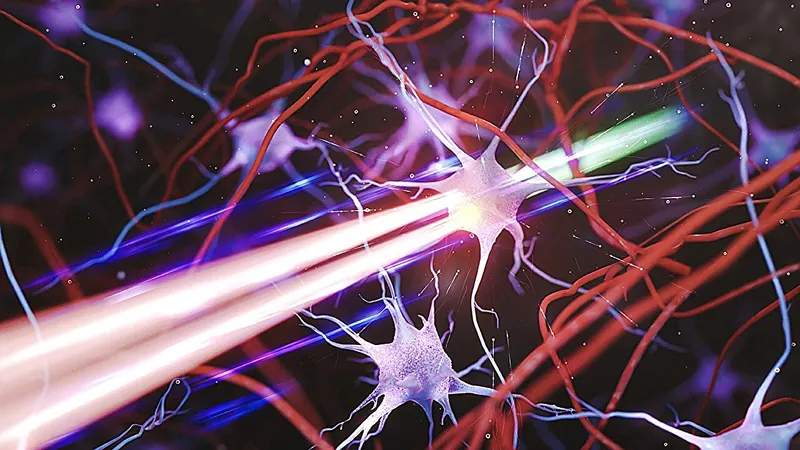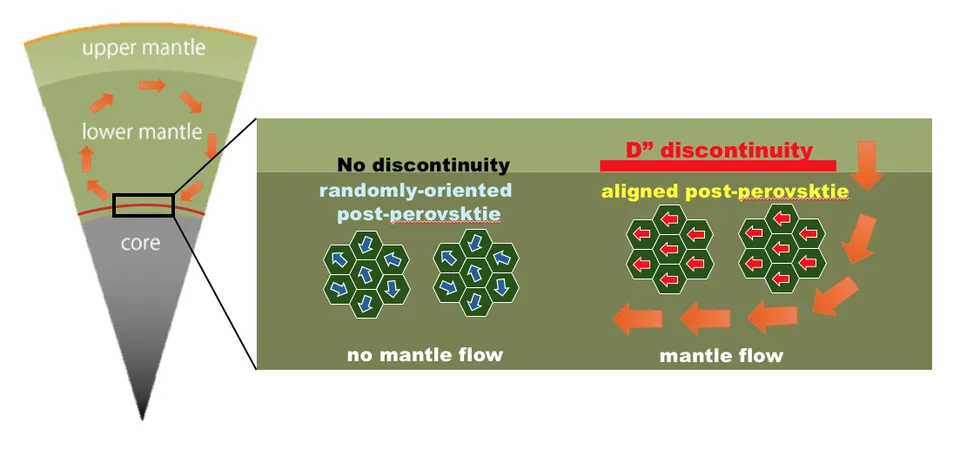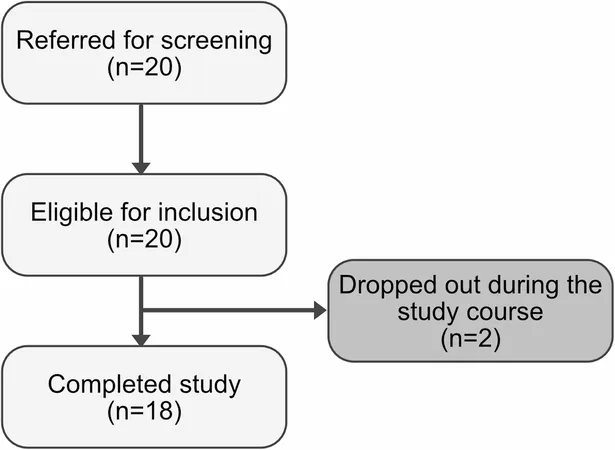
Revolutionary DEEPscope Microscope Transforms Neuroimaging: A Game Changer for Brain Research!
2024-11-06
Author: Mei
Introduction
Researchers at Cornell University have made groundbreaking strides in neuroscience with their latest invention, the DEEPscope microscope. This cutting-edge technology sets a new benchmark for brain imaging by enabling unparalleled deep and wide-field visualization of neural activity down to the level of individual cells.
Challenges in Conventional Techniques
Conventionally, multiphoton microscopy has been a valuable tool for deep-tissue imaging, but it encounters significant challenges, particularly when dealing with the intricate and often treacherous landscape of the brain's biological tissues. Typically, as researchers increase imaging depth, they must compromise on field of view, limiting their ability to capture expansive neuronal networks. With DEEPscope, this problem has been effectively tackled through the integration of state-of-the-art techniques that empower scientists to visualize extensive regions of the brain at unprecedented depths.
Key Features of the DEEPscope
One of the pivotal features of DEEPscope is its adaptive excitation system coupled with a multi-focus polygon scanning approach. This combination significantly enhances fluorescence generation, facilitating large-scale imaging while maintaining high resolution. The technology achieves a remarkable imaging capacity across a 3.23 x 3.23-mm² field at speeds fast enough to document neuronal activities deep within the cortical layers of mouse brains.
Study Highlights
In their recent study published in the journal eLight, the Cornell team showcased DEEPscope’s potential by successfully imaging entire cortical columns and subcortical structures with remarkable single-cell resolution. They documented the activities of over 4,500 neurons within both shallow and deep cortical layers of transgenic mice, marking a major milestone in neurological studies.
Whole-Brain Imaging Capabilities
Perhaps even more impressively, DEEPscope has made whole-brain imaging of adult zebrafish possible. For the first time, researchers were able to capture intricate structural details at depths exceeding 1 mm across a field wider than 3 mm, further underscoring its revolutionary capabilities.
Expert Insights
"DEEPscope represents a massive leap forward in brain imaging technology," declared Aaron Mok, the lead author of the study. "This innovation allows us to visualize complex neural circuits in living organisms at an extensive scale and depth, paving the way for enhanced understanding of brain function and new pathways in neurological research."
Conclusion
Moreover, the techniques employed by DEEPscope can easily be integrated into existing multiphoton microscopy platforms, ensuring broad accessibility for researchers in neuroscience and other disciplines that require advanced deep-tissue imaging. By overcoming historical limitations, DEEPscope sets a new standard for high-resolution, large-field, deep imaging of living tissues. This promising advancement has the potential to significantly enrich our comprehension of the brain's complex networks and their implications for health and disease.
Stay tuned as the DEEPscope continues to unlock the mysteries of the brain — the future of neuroscience research is brighter than ever!



 Brasil (PT)
Brasil (PT)
 Canada (EN)
Canada (EN)
 Chile (ES)
Chile (ES)
 Česko (CS)
Česko (CS)
 대한민국 (KO)
대한민국 (KO)
 España (ES)
España (ES)
 France (FR)
France (FR)
 Hong Kong (EN)
Hong Kong (EN)
 Italia (IT)
Italia (IT)
 日本 (JA)
日本 (JA)
 Magyarország (HU)
Magyarország (HU)
 Norge (NO)
Norge (NO)
 Polska (PL)
Polska (PL)
 Schweiz (DE)
Schweiz (DE)
 Singapore (EN)
Singapore (EN)
 Sverige (SV)
Sverige (SV)
 Suomi (FI)
Suomi (FI)
 Türkiye (TR)
Türkiye (TR)
 الإمارات العربية المتحدة (AR)
الإمارات العربية المتحدة (AR)